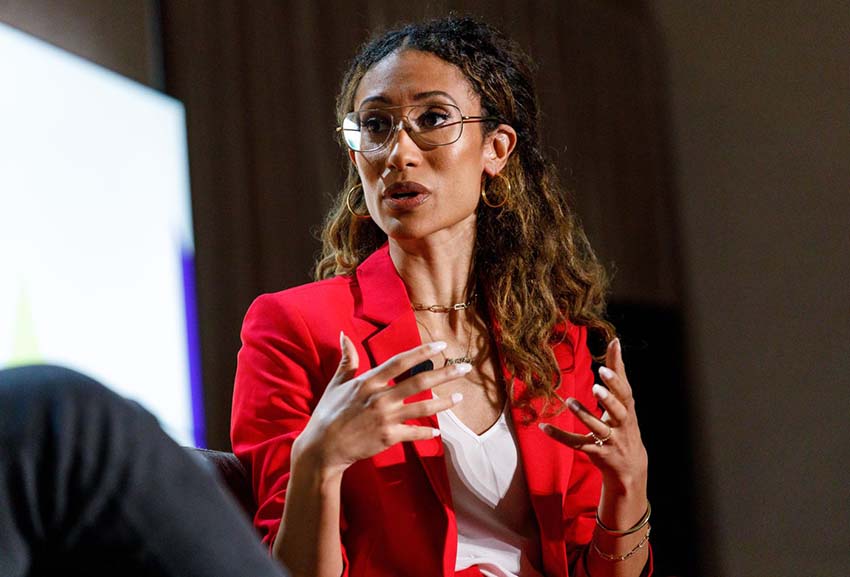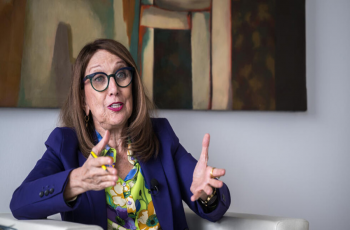Former Teen Vogue EIC Elaine Welteroth says These Two Words Can Help You Negotiate More Confidently
Know your floor and know your ceiling

Journalist and author Elaine Welteroth Photo credit: Mike Cohen for The New York Times
At just 32 years old, Elaine Welteroth is an award-winning journalist, author, host and judge on Bravo’s “Project Runway.”
She became the beauty director at Teen Vogue in 2012, the first African-American to serve in this role. Five years later, Welteroth made history again when she was named editor-in-chief of the magazine. At the time, she was the youngest person to hold this position and only the second African-American in Condé Nast history to hold this title.
In her new book, “More than Enough: Claiming Space for Who You Are (No Matter What They Say), ” Welteroth talks about her groundbreaking career and maturing into her own “2.0 era of money management.”
The simple negotiating advice she says she gives everyone is to come from a position of strength: “Know your floor and know your ceiling,” she told CNBC Make It at The New York Times New Rules Summit. “Go in at your ceiling and do not drop below your floor, because it will only lead to dissatisfaction.”
Before going into a negotiation, Welteroth suggests doing as much research as possible to get a clear idea of your market value. If the offer is an amount you’re uncomfortable with, she says you should feel confident asking if you can take the night to think about it.
“There are so many tactics that employers often use to intimidate you and make you feel as though you need to give an answer in the moment, but you actually do not,” she says. “I think the most powerful thing can sometimes be to just take your time.”
The best negotiating advice she ever got, she says, was similarly simple: “Ask anyway.”
“I was going through one of the most serious negotiations I’ve ever had in my career and the stakes felt really high,” she says. “I had to advocate for myself and I realized in that moment I didn’t have the tools to do so confidently so I called a friend, who happened to be a white man.”
She says that as “a first-generation college student who does not come from wealth and who has no safety net,” she was afraid of what might happen if a negotiation turned negative. “I was like, ‘What if they say this?’ or ‘What if they say that?’ and he just kept repeating, ‘Ask anyway.’”
Welteroth says she tried “to borrow the privileged mindset of this white man” from just that one coaching session.
“It was impossible, but I borrowed whatever confidence I could from him for that conversation. It was scary, but I think as women we need to cultivate our own community of leaders and peers who we can talk money with. I think we need to break the stigmas around [pay] and get into the numbers in order to help us assess what our value is.”
This article originally appeared on : CNBC
-

Asia hit hardest by climate and weather disasters last year, says UN
2024-04-23 -

Denmark launches its biggest offshore wind farm tender
2024-04-22 -

Nobel laureate urges Iranians to protest 'war against women'
2024-04-22 -

'Human-induced' climate change behind deadly Sahel heatwave: study
2024-04-21 -

Moldovan youth is more than ready to join the EU
2024-04-18 -

UN says solutions exist to rapidly ease debt burden of poor nations
2024-04-18 -

Climate impacts set to cut 2050 global GDP by nearly a fifth
2024-04-18 -

US sterilizations spiked after national right to abortion overturned: study
2024-04-13 -

Future of Africa's flamingos threatened by rising lakes: study
2024-04-13 -

Corporate climate pledge weakened by carbon offsets move
2024-04-11
